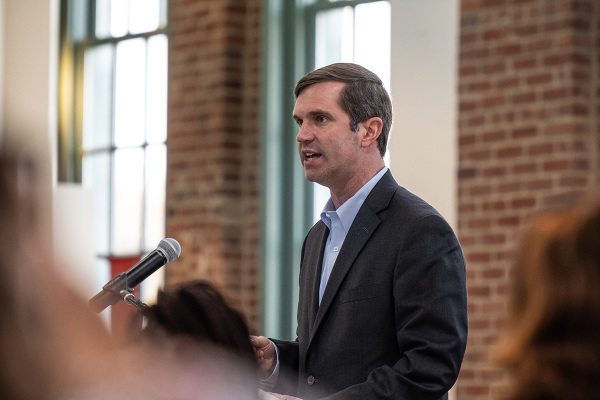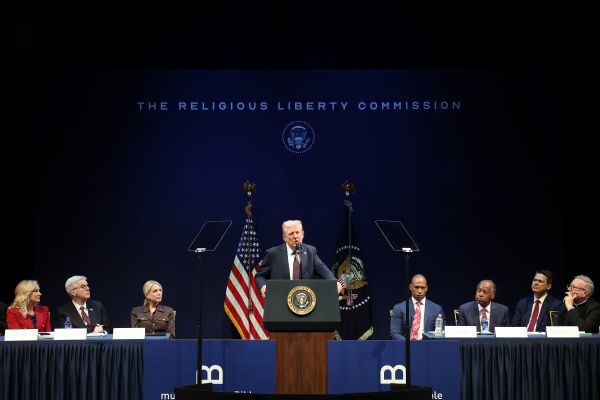A defense of singing worship songs from Bethel and Hillsong

Perhaps you saw an article that appeared online recently in which Mackenzie Morgan, a worship leader at Refine Church in Lascassas, Tennessee, announced that she and her church would no longer sing songs that come from Bethel Church in California or Hillsong Church in Australia.
After examining some of the teachings from both Bethel and Hillsong, she concluded that to sing any song that originated with or was composed by someone from either of these churches was dangerous.
Morgan insists that when it comes to corporate singing in church, “theology matters.” “It matters,” she says, “if a song is weak in theology and is not accurately displaying the Holiness of our God.” I couldn’t agree more.
Here at my church, Bridgeway, we are intensely careful never to sing error. If a song is in any way inconsistent with Scripture, we don’t sing it, no matter who wrote it or how much we might like the melody.
Morgan is also bothered by the fact that in singing the songs of Bethel and Hillsong, “royalties” are being paid to them. And in this, we are tacitly subsidizing and spreading “their false gospel message.”
She continues: “What if the majority of the church is leading its people astray singing music that is less than worthy of a Sovereign and Holy God? Would God be pleased with the lights? With the smoke machines? With the obsession of hands in the air and ‘response’ from the crowd? With loud worship nights singing songs He doesn’t approve of?”
So let me go on the record in this regard. I don’t like the strobe lights that so often are used in church worship sets. I refuse to make use of smoke machines. But I’m puzzled by the reference to the raising of hands. Has she not read Scripture’s many references to this practice? Has she not considered the deeply symbolic and spiritual nature of not only this but of other physical postures in worship?
I’m curious: Does a person’s stiff, statuesque posture, with hands firmly at one’s side or stuffed into one’s pockets honor God more than those that are lifted in praise?
Be assured of this. In no way do I endorse or turn a blind eye to the scandals that have rocked Hillsong in recent days. In no way do I endorse certain ministry methods that are employed at a variety of churches that artificially stir up emotions as an end in themselves or manipulate people into behaviors or experiences that lack biblical sanction. Every church, be it Bethel, Hillsong or Bridgeway (including Refine Church in Tennessee), needs to labor more vigorously to tether our teachings and practices to the inspired Word of God.
But let’s go straight to the point. Because this lady believes that some of what Bethel and Hillsong teach is unbiblical, no other church should make use of the music composed or sung there. She also insists that we should “read their church’s doctrine and see what they preach, teach and believe. But don’t stop there. Don’t compare it to your traditions or what you think is right. Compare it with Scripture. Scripture is the ultimate authority. Not me, not your pastor, not the world, only God. There are no gray areas in God’s Word.”
So I did just that. Bethel’s statement of faith is profoundly evangelical and orthodox and consistent with the historic creeds of Christianity. They affirm the Trinity, the inspiration and authority of the Bible, the incarnation and virgin birth of Jesus Christ, His substitutionary death on the cross, bodily resurrection, and ascension into Heaven.
They further affirm that we are saved by grace through faith in the person and work of Jesus. Bethel was at one time affiliated with the Assemblies of God, and yet their statement on the issue of Spirit baptism differs from that denomination’s viewpoint.
Here is what they say: “The baptism of the Holy Spirit, according to Acts 1:4-8 and 2:4, is poured out on believers that they might have God’s power to be His witnesses.”
Nothing is said about speaking in tongues being the initial, physical evidence of Spirit baptism. They do appear to believe that this experience is separate from and subsequent to conversion, but even then the language is a bit ambiguous. And let us not forget that although I and many evangelical charismatics believe baptism in the Spirit occurs simultaneous with conversion, the doctrine of “separate and subsequent” has been and still is embraced by numerous Christian denominations within the Pentecostal world, and is ably (even if not persuasively) defended by countless biblical scholars who minister in that tradition. We may disagree with their view on this point, but it is very much a secondary, perhaps even tertiary, doctrine. It is hardly a hill to die on.
I’m baffled by how or on what basis Morgan accuses them of preaching a “false gospel.” They preach salvation by grace alone in Christ alone through faith alone. They tether their hope of eternal life on trust in the sinless life, sacrificial, atoning death and bodily resurrection of Jesus.
Now, are there certain other ministry practices embraced by Bethel that I find questionable and without explicit biblical support? Yes. But those do not make them heretical or deserving of cynical disdain. If more time were spent by Bethel’s critics praying for them than is given to writing hyper-critical reviews, perhaps such practices would diminish over time.
Morgan says that she will not sing songs that are not “worthy of a sovereign and Holy God.” Good for her. I agree. And I hope you wouldn’t ever sing such songs either. But I challenge anyone to closely examine the lyrics of these songs, all of which were composed by someone in Bethel or Hillsong or related to them in close friendship or some other ministry alliance, and tell me they are dangerous, unbiblical or not worthy of who God is and what he has done.
Here is a small sampling:
“Goodness of God”
“King of Kings”
“O Praise the Name!”
“Worthy is the Lamb”
“Cornerstone”
“For the Cross”
I will go on record and say that God is profoundly honored and exalted by each of these songs.
“Oh, but Sam. We disagree with some of their secondary doctrines. Won’t our singing of these songs communicate to people that we endorse what some in their churches believe? And we have to pay royalties to sing those songs. Aren’t we contributing to the spread of their errors?”
No. Folks, I plead with you: Don’t let cancel culture come to church! You may differ with Bethel and Hillsong in some (perhaps many) of their ministry practices. So do I. But we will sing with these people around the throne of the Lamb for eternity. They are our brothers and sisters in Christ. Surely, you are not prepared to denounce them as unregenerate, unbelievers because they don’t toe the line on every doctrine that you embrace.
What about Morgan’s concern that by singing the songs of Bethel and Hillsong we are paying royalties to these churches? Well, let me ask Morgan and others a question or two.
Where will you draw the line on where and to whom you will allow your money to go?
Should I throw away all the books in my library that were written by Jewish scholars because they reject Jesus as the Messiah? Have you refused to do your shopping at Kroger and Target because they are decidedly pro-LGBT? Do you carefully avoid purchasing gas for your car from those stations that obtain their products from oil companies that fund Planned Parenthood?
Have you stopped singing “A Mighty Fortress is our God” because its author, Martin Luther, made horrific anti-Semitic statements in his later years?
Should we refuse to sing “It is Well with My Soul” because the author of its lyrics, Horatio Spafford, eventually denied the existence of Hell, affirmed universalism and purgatory, and was guilty of multiple instances of fraudulent financial dealings?
In no way do I even remotely endorse the errors of all those I have just mentioned, but to refuse to sing thoroughly biblical worship songs they wrote, lest we be somehow tainted or defiled in doing so, is both impractical and absurd, and will only lead to a legalistic and Pharisaical local church culture. You will end up encased in your own echo chamber, isolated and alone, pridefully patting yourself on the back for being among the remnant who “get it right.”
I, for one, will instead continue to remain rigorously biblical in what I preach and how I sing, but do so without castigating or canceling other Christians who happen to differ with me on some secondary issue or ministry style.
Sam Storms is lead pastor for preaching and vision at Bridgeway Church in Oklahoma City, Oklahoma, and was previously a visiting associate professor of theology at Wheaton College from 2000 to 2004. He is the founder of Enjoying God Ministries and blogs regularly at SamStorms.org.





















